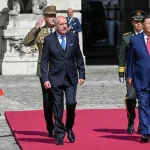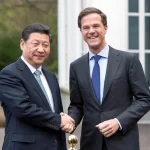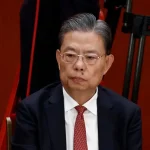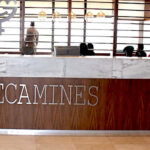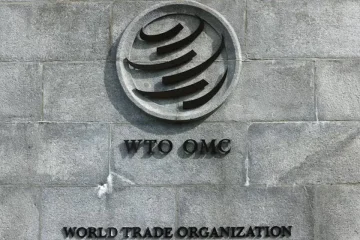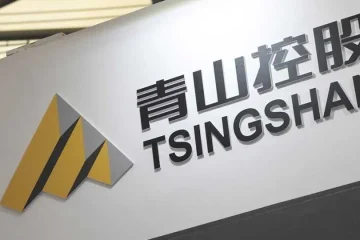THE recent establishment by the European Commission of an anti-subsidy investigation against the hugely popular Chinese Electric Vehicles (EVs) will inadvertently backfire on their citizens instead of harming the People’s Republic of China.
I cannot see how such an unfortunate initiative, intended to be punitive in every aspect and intent, will not boomerang and hurt the European customers hard in their wallets and purses.
For starters, the Western government’s democratic principles are fundamentally interwoven into the dictates of the free market economic system as well as capitalist practices.
From the standpoint of a simplified version of socialism, one could interpret the above brand of philosophy to mean that “the rich get richer, and the poor get poor”. In a set-up of a jungle, the situation could be described as a “dog eats dog”, or “survival of the fittest”. Conversely, China’s form of governance under the leadership of President Xi Jinping and the Communist Party of China (CPC) is inclined toward a system where every citizen is assisted to access better living standards. Over the past decade alone, China has taken more than 800 million citizens out of poverty, causing the UN to applaud the achievement of one of the key Millennium Goals.
Additionally, from a Social Science point of view, the role of the State in society is crucial in advancing individual or group/community development through meaningful economic involvement.
In Botswana, for instance, the government insist – as a rule and in law – that foreign companies must form a JV (Joint Venture) with a local entity that must hold significant percentage points of up to 51 in the shareholding of any such company.
Now, let’s take a look at the European Commission and why it seeks to push back on China’s fair trade with willing EV industries across the EU.
The Commission is the EU’s very powerful executive arm that on paper is “politically independent”. The Commission alone is responsible “for drawing up proposals for new European legislation”. It is also tasked with implementing the “decisions of the European Parliament”. So, the watchdog has turned its eyes on the Chinese EVs for what appears to be more political than economic reasons. There is no visible business logic, nor convincing basis, for the Commission to impose increased taxation on imported Chinese EVs as that would lead to an increase in price for Europe’s import/export market and this will trickle down horrendously to the innocent consumers.
One of the key functions of the Commission is to “negotiate international agreements on behalf of the EU”, and also to manage the EU’s budget. It is unfathomable how, in the process of budget management, the Commission believe it would benefit Europe to put avoidable tariffs on Chinese EVs that the EU citizens have come to embrace for their modest price tags, comfort and competitive standards.
Oftentimes some governments are accused of “protectionism”, which is a “theory or practice of shielding a country’s domestic industries from foreign competition by taxing imports”.
It is difficult to make sense of the European Commission’s desire to “protect” their domestic EV manufacturing industry against their highly competitive Chinese counterparts whose products have become a worldwide demand.
The European Commission’s announcement that it is starting an anti-subsidy probe into Chinese EVs that are increasingly hugely popular with EU customers is a clear indication of throwing politics into business to serve the selfish geopolitical interests of the West.
The Commission has stipulated a sudden increase of provisional duties levied on EV imports from China by up to a whopping 38.1 per cent effective from July 4. Predictably, this has drawn criticism from major EU automobile companies in several states including Germany and Hungary.
For the uninitiated, Chinese EVs can compete in terms of comfort, standard and above all, pricing. The affordability of Chinese EVs has inevitably led to a sharp decline in the local EU automobile industry.
European buyers – as customers wisely do worldwide – would rather spend their hard-earned cash on the purchase of relatively inexpensive Chinese-made EVs and save money for use elsewhere, or in their retirement funds. China is the world’s 2nd biggest economy, second only to the US, and this means that the Chinese EV industry is a force to reckon with globally.
Methinks the close geopolitical ties between the US and EU that also transcend into the economic sphere can be suicidal if not handled with great care. Since the Trump administration, trade wars between Beijing and Washington have been a common feature in their bilateral relations ostensibly triggered by Washington’s penchant for unilateralism. Sadly the incumbent, President Joe Biden, has carried on seamlessly with the Trump-like adversarial posture toward China, threatening every avenue of Chinese business excellence with accusations of “State underhand” that the West credits with having led to China’s perceived unfair advantage over the beleaguered EU’s EV industry.
Now, the hard question should, in my view, be: Shouldn’t the primary concern of states be the welfare – in every shape or form – of their citizens, in this case, the European EV customers?
As I indicated above, I find it utterly wrong that the EU should punish their citizens through a mischievous targeting of Chinese businesses whose goods and services European automobile customers find to be reliable, inexpensive, of high quality and worthy of investing in their purchase – without any push or force for that matter.
Chinese Foreign Ministry spokesperson Lin Jian lambasted the European Commission’s move as self-harming.
“The investigation is a typical protectionist move, which ignores objective facts and disregards WTO rules in reverse of the historical trend,” Lin said, before adding: “We urge the EU side to listen carefully to the objective and rational voices of all sectors, immediately correct its wrong practices, stop politicizing economic and trade issues, properly handle economic and trade frictions through dialogue and consultation, and avoid undermining mutual trust and dialogue and cooperation between China and the EU.”
Indeed, it would be a very sad day in global affairs when inter-continental trade by independent industries will be victimised by the meddling of politics in business on baseless grounds.
The loss of trade through an unnecessarily disabling environment has detrimental effects that would be felt by individuals, families and communities across the EU. No one wins when confrontation supersedes dialogue.
*Abbey Makoe is Founder and Editor-in-Chief: Global South Media Network

